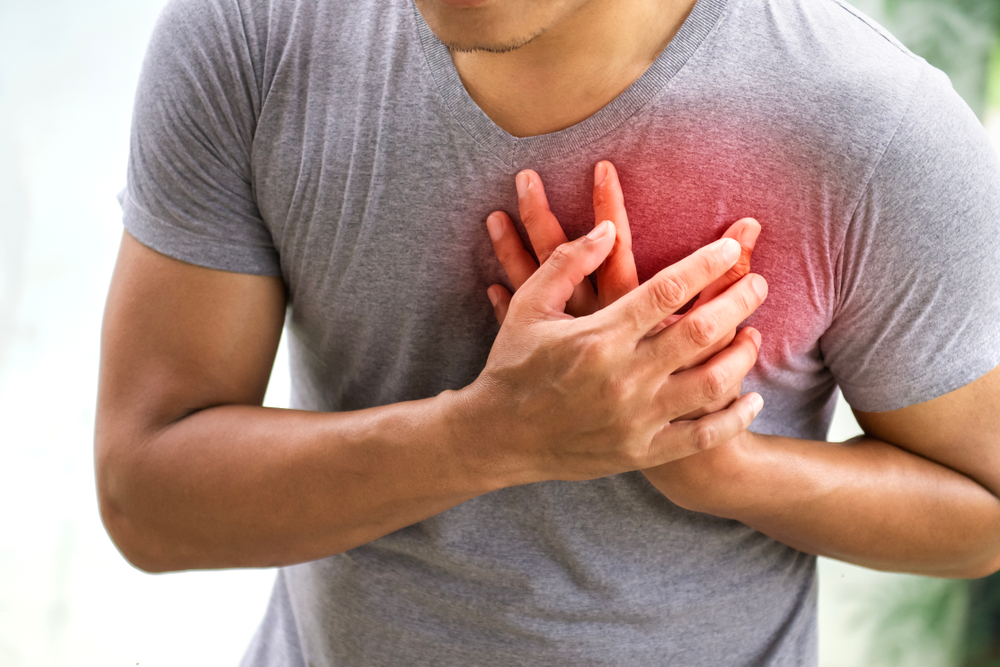The Common Causes Of Chest Pain
The common causes of chest pain
The most important aspect of human life is health. With changing lifestyles, people have put their health at risk. There has been a constant increase in health issues faced by working people due to an unhealthy lifestyle. People are spending more and more time working, without giving rest to their body. There is no physical exercise during the day and hence the body is getting affected by diseases.

Chest pain is one such symptom that people are experiencing frequently nowadays. It can be due to a cardiac disorder, a gastrointestinal malfunction, or other health issues. It is important to understand the type of chest pain being experienced by a person to avoid unwanted emergencies. Upper left chest pain could be an indication of a heart attack, and right side chest pain can be due to stress or muscle strain. Chest pain is becoming more common nowadays and should be discussed with a good doctor immediately. Everyone must have a basic knowledge of chest pain. Here are a few details about the same.
What is chest pain?
- It is one of the common pains experienced by people nowadays.
- It can happen at any location in the chest and for any duration. The duration of the pain can be long, and sometimes it can get intense as well.
- The chest pain could be a sign of a heart-related problem or may have other reasons that are not life-threatening.
- Even if the chest pain is mild, it should be taken seriously and a doctor should be consulted immediately.
What are the heart-related causes of chest pain?
Even though chest pain is considered to be a major symptom of a heart attack, there could be other reasons that could lead to chest pain. Since the heart is located in the chest, chest pain is common during a heart attack. Below are the causes:
- Heart attack, which is due to the blockage of blood flow to the heart.
- Angina, which is caused by blockage of the blood vessel going to the heart.
- Myocarditis, which causes inflammation of the heart muscle.
- Pericarditis or the inflammation of the sac around the heart.
- Cardiomyopathy, which is a heart muscle disease.
What are the gastrointestinal causes of chest pain?
- Acid reflux
- Gallstones
- Inflammation of the pancreas or gallbladder
- Swallowing problems
What are the lung-related causes of chest pain?
- Pneumonia
- Viral bronchitis
- Pneumothorax
- Blood clot
- Bronchospasm
What are the muscle and bone-related causes of chest pain?
- Broken ribs
- Sore muscles
- Compression fractures
What symptoms can occur with chest pain?
There can be other symptoms as well that you may experience along with chest pain. These are as listed:
- Shortness of breath
- Fatigue
- Dizziness
- Abdominal pain
- Nausea
- Difficulty in swallowing
- Fever
- Aches
- Cough
- Chills
- Light-headedness
How can chest pain be diagnosed?
You should visit a doctor immediately if you feel that the chest pain you are experiencing is severe. The diagnostic tests that can be performed are the following:
- An electrocardiogram can be done to check the heart’s condition.
- Blood tests can be done to check the enzyme levels.
- A chest x-ray helps take a closer look at the heart, blood vessels, and lungs.
- Angiogram to look for blockage in the arteries.
- Stress tests to check heart functioning post-exertion.
- MRI scan to check for damage in the heart muscle.
How is chest pain treated?
The treatment of chest pain depends on its cause and severity. Below are a few treatments that the doctor can prescribe:
- Heart-related cause : If the cause of chest pain is related to your heart, the doctor can prescribe a surgical repair of the arteries in case of a blockage, cardiac catheterization involving stents to open blocked arteries, or medications such as nitroglycerin for curing arteries, blood clots, etc.
- Other causes of chest pain : In case of other causes, lung reinflation can be done if one lung has collapsed, antacids can be prescribed for acid reflux etc., or anti-anxiety medicines for chest pain caused by panic attacks.
Make sure you consult your doctor before taking any kind of medication for your chest pain issues. Taking non-prescribed medication can be dangerous.















